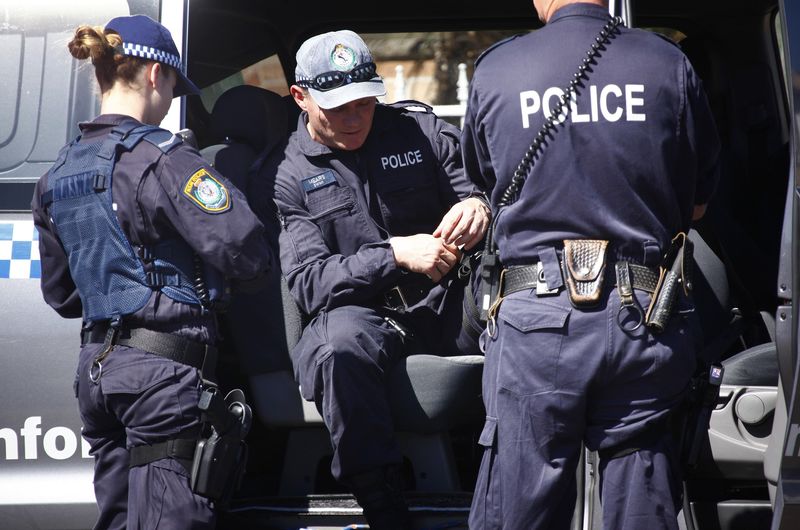China smartphone shipments slumped in June on inventory overhang: Jefferies
By Libby George and Tife Owolabi
LAGOS/YENAGOA, Oct 18 (Reuters) - The International
Committee of the Red Cross (ICRC) will help train Nigeria's new
tactical force as thousands nationwide continued to march
against police brutality and in demand of further reforms,
Nigeria's police inspector general said in a statement on
Sunday.
Protests began roughly two weeks ago demanding the
dissolution of the Special Anti-Robbery Squad (SARS), which was
accused by Nigerians and groups such as Amnesty International of
extortion, brutality and torture.
The police force has repeatedly denied the accusations
against SARS, though it said earlier this month that "unruly and
unprofessional" officers had been arrested and were facing
disciplinary actions
The new unit, the Special Weapons and Tactics (SWAT) team,
was created to "fill the gaps" left when police disbanded SARS
on Oct. 11.
SWAT training will begin on Monday in partnership with the
ICRC and "other development partners", Mohammed Adamu, inspector
general of police, said in a statement. Former SARS officers are
not eligible to join SWAT, the statement said.
The ICRC did not immediately respond to a request for
comment. Police said the ICRC would join training on
humanitarian laws, police conduct in conflict, and human rights
in the use of force, arrest and detention.
Senate President Ahmad Lawan, after meeting with President
Muhammadu Buhari on Sunday, called on protesters to stand down
in light of the steps leaders had taken.
But protesters are demanding further protections against the
police, including independent oversight and psychological
evaluation of officers. Hundreds joined a prayer march on Saturday in Port Harcourt,
and peaceful marches and demonstrations continued in Lagos,
Abuja, Warri, Enugu and Makurdi. Supporters launched an online
radio station to bolster the movement.
Most demonstrations are now peaceful, after authorities
barred police from using force against protesters. But at least two were killed around demonstrations on
Saturday in Osogbo in southwestern Osun state, a spokesman for
Governor Gboyega Oyetola told Reuters. The spokesman said an
angry mob had attacked Oyetola's convoy, and that one person was
killed before he arrived and the second after he had left.
